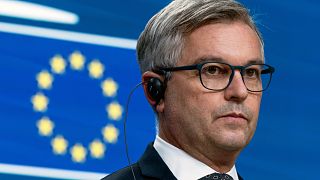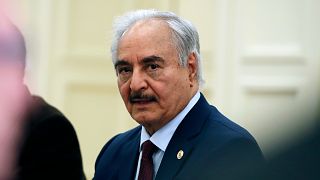Libya
Libya's Prime Minister-designate Abdel Hamid Dbeibah urged MPs on Monday to be responsible by placing confidence in his government, -born of a UN-sponsored process and which must help bring Libya out of chaos- by leading it to elections at the end of the day. December.
Abdel Hamid Dbeibah addressed the 132 deputies (out of 188) of the House of Representatives gathered for a crucial session devoted to the vote of confidence. His government has until March 19 to be approved by the elected parliament, which has met very rarely in recent years due to divisions.
The meeting is being held in Sirte, halfway between West and East, two main regions of the country ruled by separate authorities amid foreign interference.
"I call on the deputies not to miss the opportunity (...), to allow the government to immediately accomplish its difficult tasks and not to postpone the vote of confidence", pleaded Mr. Dbeibah before the start of the session.
The session began with interventions by deputies, in particular on the composition of the government. One of them called on Mr. Dbeibah to clarify his roadmap, while another criticized "controversial figures" on the list proposed by the interim prime minister.
Sirte, the hometown of ex-dictator Muammar Gaddafi, is still under the control of the strong man from the east, Khalifa Haftar, and his forces, made up of foreign fighters and mercenaries, among others.
According to the UN, the latter were still 20,000 in Libya at the beginning of December. The January 23 deadline for their departure from the country, as stipulated in an October ceasefire agreement, has passed without any sign of withdrawal.
Abdel Hamid Dbeibah, a 61-year-old billionaire from Misrata (West), was appointed interim prime minister on February 5 by 75 Libyan officials from all sides gathered in Geneva under the auspices of the UN, along with a Three-member presidential council headed by Mohamed Al-Manfi, originally from the East.
The government proposed by Mr. Dbeibah, assisted by two Deputy Prime Ministers, one from Cyrenaica (East) and one from Fezzan (South), is made up of 33 portfolios: 27 ministries, including seven sovereigns, and six ministers of state. Their names have not been released.
If he obtains the confidence of the deputies, Mr. Dbeibah will have to unify the institutions of a rich oil country plagued by chaos since the fall of Gaddafi in 2011 and lead the transition until the elections of December 24.
But winning the confidence of a deeply divided Parliament is like an obstacle course: the Government of National Unity (GNA), installed in Tripoli in 2016 and recognized by the UN, has never obtained it.
In the event of failure, the vote would go to the delegates of the interlibyan dialogue, a UN process launched in November in Tunis and put into orbit in Geneva.
- "Obstacles" -
Khaled el-Montasser, professor of international relations in Tripoli, evokes "obstacles and difficulties even before the vote of confidence", the Prime Minister being "surrounded by suspicion".
"His political rivals have engaged in fierce libel campaigns (...). They have succeeded in creating a climate of tension," confirms political analyst Mahmoud Khalfallah.
On social networks, many voices criticized the number of portfolios deemed too high for a government supposed to stay nine months.
The Ministry of Economy and Industry has been split into two, that of Education into three (Education, Higher Education and Technical Education), while some public bodies are now doubled as a ministry: the National Company of petroleum with a Ministry of Oil and Gas, the General Water Authority with a Ministry of Water Resources ...
"In forming the government, we took into account the balance between competence and the guarantee of regional inclusion (...), so that the government is truly representative of all Libyans", argued Mr. Dbeibah.
The seven sovereign portfolios are distributed among the three provinces: Foreign Affairs for the East; Economy, Trade and Justice for the West; Defense, Interior and Finance for the South.
The future executive must replace both Fayez al-Sarraj's GNA and the rival power in the East.
Mr. Dbeibah will also have to meet the pressing expectations of Libyans in a country plunged into a serious economic crisis, including shortages of liquidity and gasoline, power cuts and galloping inflation.













01:49
Broken windows and lootings: Nairobi businesses deal with protest aftermath
02:24
Celebration and protests: Nigeria marks 26 years of uninterrupted democracy
Go to video
Reports of US plans to deport migrants to Libya spotlight rights abuses
Go to video
Thousands of people rally in support of Burkina Faso's transitional president
Go to video
Sudan: Rapid Support Forces leader announces rival government
Go to video
Rwandan government announces death of deputy spokesperson Alain Mukuralinda